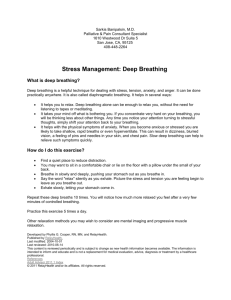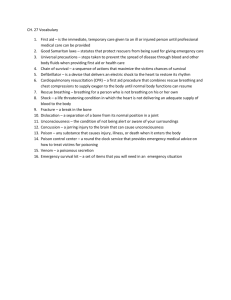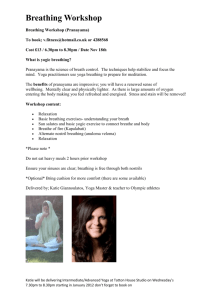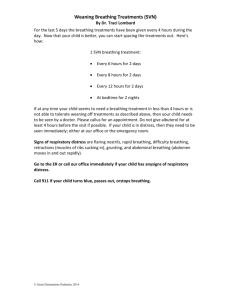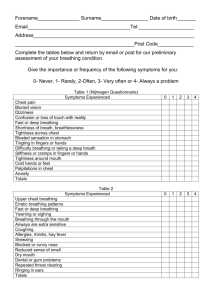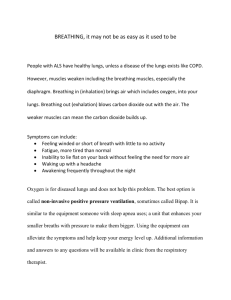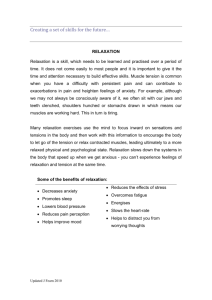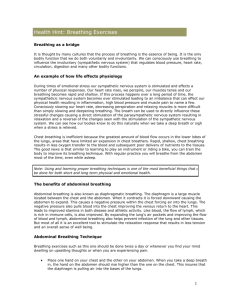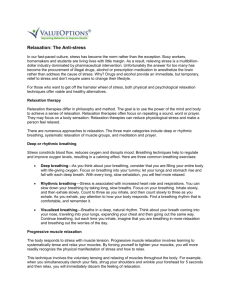Breathing - Tench Therapies
advertisement
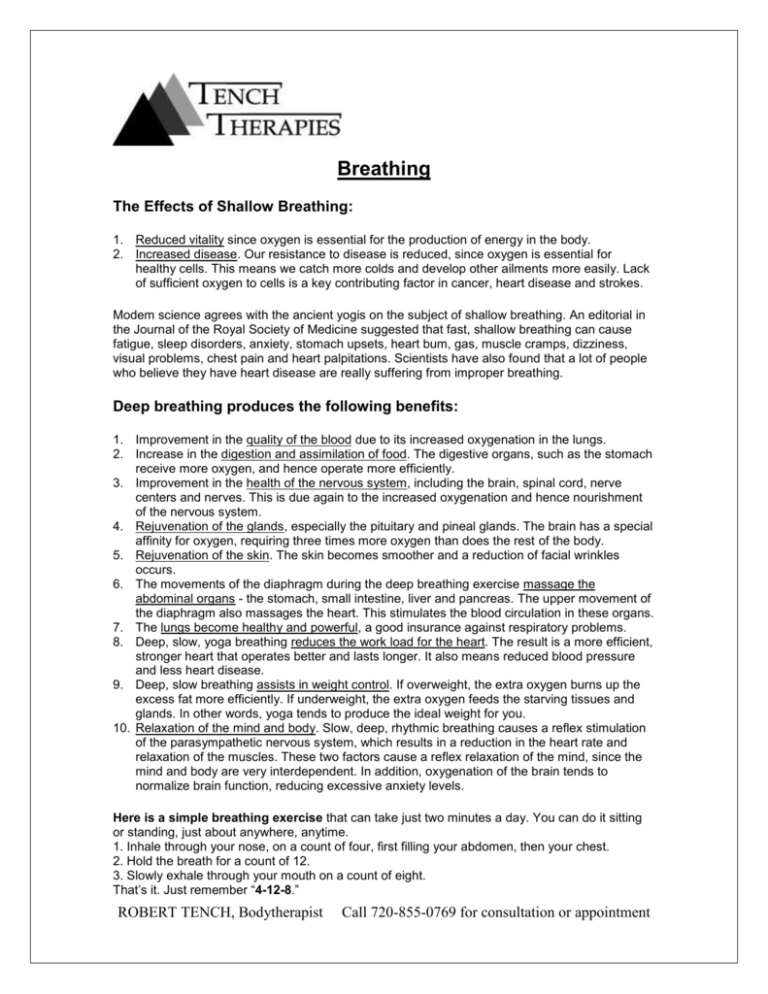
Breathing The Effects of Shallow Breathing: 1. Reduced vitality since oxygen is essential for the production of energy in the body. 2. Increased disease. Our resistance to disease is reduced, since oxygen is essential for healthy cells. This means we catch more colds and develop other ailments more easily. Lack of sufficient oxygen to cells is a key contributing factor in cancer, heart disease and strokes. Modem science agrees with the ancient yogis on the subject of shallow breathing. An editorial in the Journal of the Royal Society of Medicine suggested that fast, shallow breathing can cause fatigue, sleep disorders, anxiety, stomach upsets, heart bum, gas, muscle cramps, dizziness, visual problems, chest pain and heart palpitations. Scientists have also found that a lot of people who believe they have heart disease are really suffering from improper breathing. Deep breathing produces the following benefits: 1. Improvement in the quality of the blood due to its increased oxygenation in the lungs. 2. Increase in the digestion and assimilation of food. The digestive organs, such as the stomach receive more oxygen, and hence operate more efficiently. 3. Improvement in the health of the nervous system, including the brain, spinal cord, nerve centers and nerves. This is due again to the increased oxygenation and hence nourishment of the nervous system. 4. Rejuvenation of the glands, especially the pituitary and pineal glands. The brain has a special affinity for oxygen, requiring three times more oxygen than does the rest of the body. 5. Rejuvenation of the skin. The skin becomes smoother and a reduction of facial wrinkles occurs. 6. The movements of the diaphragm during the deep breathing exercise massage the abdominal organs - the stomach, small intestine, liver and pancreas. The upper movement of the diaphragm also massages the heart. This stimulates the blood circulation in these organs. 7. The lungs become healthy and powerful, a good insurance against respiratory problems. 8. Deep, slow, yoga breathing reduces the work load for the heart. The result is a more efficient, stronger heart that operates better and lasts longer. It also means reduced blood pressure and less heart disease. 9. Deep, slow breathing assists in weight control. If overweight, the extra oxygen burns up the excess fat more efficiently. If underweight, the extra oxygen feeds the starving tissues and glands. In other words, yoga tends to produce the ideal weight for you. 10. Relaxation of the mind and body. Slow, deep, rhythmic breathing causes a reflex stimulation of the parasympathetic nervous system, which results in a reduction in the heart rate and relaxation of the muscles. These two factors cause a reflex relaxation of the mind, since the mind and body are very interdependent. In addition, oxygenation of the brain tends to normalize brain function, reducing excessive anxiety levels. Here is a simple breathing exercise that can take just two minutes a day. You can do it sitting or standing, just about anywhere, anytime. 1. Inhale through your nose, on a count of four, first filling your abdomen, then your chest. 2. Hold the breath for a count of 12. 3. Slowly exhale through your mouth on a count of eight. That’s it. Just remember “4-12-8.” ROBERT TENCH, Bodytherapist Call 720-855-0769 for consultation or appointment

